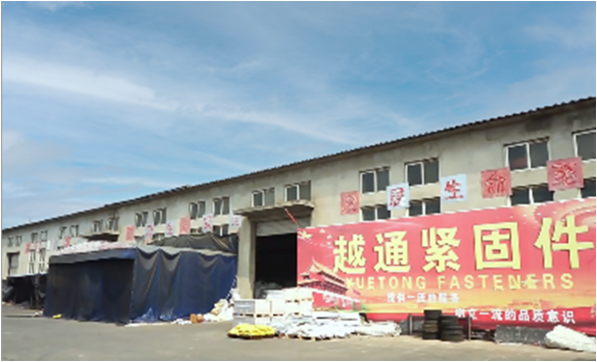sep . 24, 2024 22:31 Back to list
m5 threaded studs
Understanding M5 Threaded Studs Applications and Advantages
M5 threaded studs are versatile mechanical components that have found their place in various industries due to their unique features and advantages. The designation 'M5' refers to the stud's diameter of 5 millimeters, which classifies it within the metric system of fasteners. Threaded studs are commonly used in structural applications, machinery, and equipment assembly, making them essential for ensuring stability and reliability in numerous settings.
Construction and Design
M5 threaded studs are typically made from a wide range of materials, including stainless steel, carbon steel, and sometimes alloys. The choice of material often depends on the mechanical properties required for specific applications, such as tensile strength, corrosion resistance, and durability. Stainless steel, for example, is preferred in environments prone to moisture and chemical exposure, while carbon steel is often used for its high strength and cost-effectiveness.
These studs are designed with precision-engineered threads, which allow for a secure fit when paired with nuts or other fasteners. The threading on an M5 stud generally adheres to ISO or DIN standards, ensuring compatibility with existing systems and components. The standard pitch for M5 threads is typically 0.8 mm, providing a balance between ease of assembly and strength.
Applications of M5 Threaded Studs
One of the primary applications of M5 threaded studs is in the assembly of machinery and mechanical equipment. They serve to connect various parts securely, ensuring operational safety and functionality. In automotive applications, for example, M5 studs might be used to attach engine components or secure parts of the chassis, where a strong and reliable connection is crucial.
In the electronics industry, M5 threaded studs provide mounting solutions for various devices and components. Their compact size allows for efficient use of space, making them ideal for securing circuit boards and other sensitive equipment within electronic enclosures. The use of threaded studs in this context ensures that sensitive components are held firmly in place, minimizing the risk of damage during operation.
m5 threaded studs

M5 threaded studs are also prevalent in the construction sector, where they are used to anchor structures such as wooden beams and metal frames. Their ability to withstand significant tension and shear forces makes them suitable for securing heavy installations. Additionally, they enable quick assembly and disassembly, which is particularly beneficial in temporary structures or during renovation projects.
Advantages of Using M5 Threaded Studs
The use of M5 threaded studs comes with various advantages that contribute to their popularity in different fields. Firstly, their standardized dimensions mean that they can be easily sourced and replaced, reducing downtime during repairs or maintenance. Additionally, the wide range of materials available ensures that users can select a stud that meets the specific environmental and mechanical requirements of their application.
Furthermore, M5 threaded studs provide excellent load distribution due to their design. This characteristic helps to minimize stress on the fastening points, prolonging the life of both the stud and the connected components. The threaded design allows for precise torque control during installation, ensuring that connections are secure yet not over-tightened, which could lead to material fatigue.
Lastly, the versatility of M5 studs allows them to be used in a myriad of applications, from lightweight electronics to heavy machinery. This adaptability makes them a go-to solution for engineers and designers looking for reliable fastening solutions.
Conclusion
In summary, M5 threaded studs are integral components in a myriad of industrial applications, valued for their robustness, versatility, and ease of use. Whether in mechanical assemblies, electronics, or construction, these studs provide a reliable fastening solution that ensures the integrity and safety of structures and machines. As industries continue to evolve, the importance of such fasteners in maintaining operational efficiency and safety cannot be overstated. Understanding their properties and applications is essential for engineers and manufacturers aiming to optimize their designs and processes.


